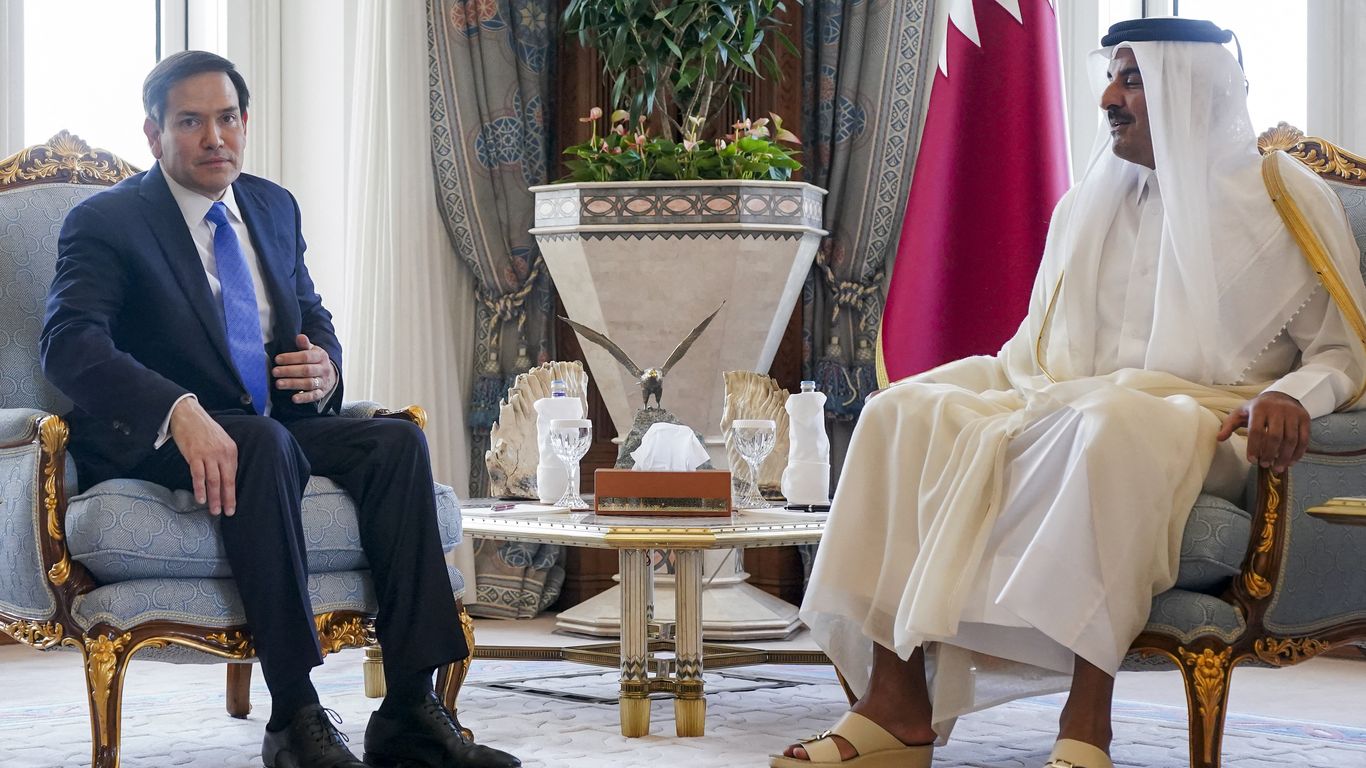Qatar’s insistence on an Israeli apology for a recent strike in Doha has prompted the Gulf nation to suspend mediation efforts in Gaza. As hostages hang in the balance, U.S. officials work to quell tensions and rekindle a fragile peace process.
Scoop: Qatar requests Israeli apology to resume Gaza mediation efforts

Key Takeaways:
- Qatar halted its role as mediator after an Israeli strike in Doha.
- Five Hamas members and one Qatari security officer were killed in the attack.
- Qatar’s emir demands an Israeli apology before resuming talks.
- U.S. officials argue Qatari mediation is vital for freeing hostages and ending the conflict.
- Israel’s potential apology is politically sensitive but not unprecedented.
Tensions Over the Strike in Doha
Qatar has demanded a formal apology from Israel for a strike in Doha that occurred 10 days ago, resulting in the deaths of five Hamas members and one Qatari security officer. The incident, the first known instance of an Israeli airstrike in a Gulf state, caused widespread anger in Qatar and across the region.
Crisis in Mediation
Before the bombing, Qatar had been serving as a key intermediary in negotiations aimed at ending the war in Gaza and releasing hostages. However, Qatari diplomats stepped back from that role following the strike. According to sources familiar with the matter, that mediation is crucial to any deal, and U.S. officials fear the impasse could stymie hopes of resolving the crisis.
U.S. Role in De-Escalation
Senior figures in the Trump administration have been working diligently to close the gap between Israel and Qatar. Secretary of State Marco Rubio met with Qatari Emir Tamim bin Hamad Al-Thani in Doha, and the topic of an Israeli apology reportedly figured prominently in their discussions. Meanwhile, U.S. envoy Steve Witkoff and Israeli Strategic Affairs Minister Ron Dermer touched on the same subject, underscoring the urgent need to calm tensions. Witkoff is slated to meet Qatari Prime Minister Mohammed bin Abdulrahman Al-Thani in New York on Saturday, with hopes of reestablishing dialogue.
Netanyahu’s Dilemma
Israeli Prime Minister Benjamin Netanyahu has publicly disparaged Qatar for allegedly harboring terrorists. Israeli sources say he underestimated the fallout the strike would cause, and now he faces a difficult decision: whether to issue an apology that satisfies Qatari demands while maintaining political credibility with his hard-right coalition. According to a source, Netanyahu may consider an apology focused specifically on the death of the Qatari security officer, including possible compensation for his family, as part of a compromise that affirms respect for Qatari sovereignty.
Historical Precedent
Israel has previously apologized for military actions that claimed foreign lives, most notably when Netanyahu issued an apology in 2013 to Turkey for the deaths of activists in the 2010 Gaza flotilla raid. That move, however, was fraught with political peril and required careful negotiation of language to assuage both diplomatic and domestic concerns.
Looking Ahead
While the path forward is far from certain, upcoming discussions between U.S. and Qatari officials could help ease tensions and bring Qatar back to the mediation table. If an acceptable formula is found for an Israeli expression of regret, the door may reopen for renewed talks aimed at ending the ongoing conflict in Gaza and securing the release of hostages.











